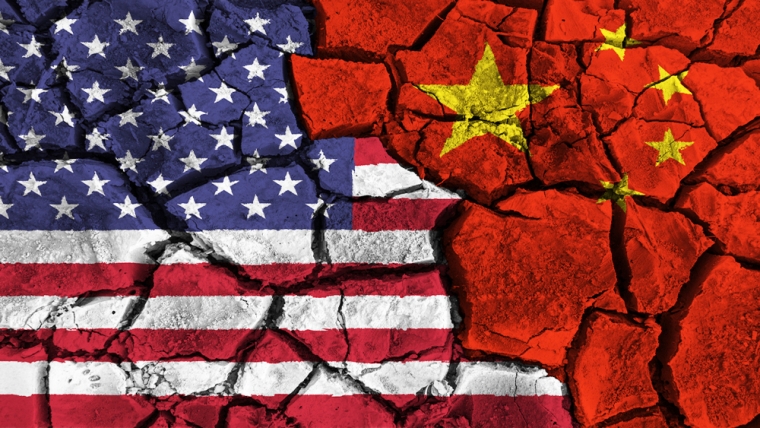
Following the May G7 summit in Hiroshima, US President Joe Biden claimed that he expects a “thaw” in relations with China. Yet despite some recent official bilateral meetings – with US Secretary of the Treasury Janet Yellen expressing hopes for a visit to China soon – relations remain icy.
In fact, far from thawing, the new cold war is getting colder, and the G7 summit itself magnified Chinese concerns about the United States pursuing a strategy of “comprehensive containment, encirclement, and suppression.” Unlike previous gatherings, when G7 leaders offered mostly talk and little action, this summit turned out to be one of the most important in the group’s history. The US, Japan, Europe, and their friends and allies made it clearer than ever that they intend to join forces to counter China.
Moreover, Japan (which currently holds the group’s rotating presidency) made sure to invite key leaders from the Global South, not least Indian Prime Minister Narendra Modi. In reaching out to rising and middle powers, the G7 wants to persuade others to join its more muscular response to China’s rise. Many will likely agree with the depiction of China as an authoritarian, state-capitalist power that is increasingly assertive in projecting power in Asia and globally.
While India (which holds this year’s G20 presidency) has taken a neutral position on Russia’s war in Ukraine, it has long been locked in a strategic rivalry with China, owing partly to the fact that the two countries share a long border, much of which is disputed. Thus, even if India does not become a formal ally to Western countries, it will continue to position itself as an independent, rising global power whose interests are more aligned the West than with China and China’s de facto allies (Russia, Iran, North Korea, and Pakistan).
Moreover, India is a formal member of the Quadrilateral Security Dialogue, a security grouping with the US, Japan, and Australia whose explicit purpose is to deter China; and Japan and India have longstanding friendly relations and a shared history of adversarial relations with China.
Japan also invited Indonesia, South Korea (with which it is pursuing a diplomatic thaw, driven by common concerns about China), Brazil (another key Global South power), African Union Chair Azali Assoumani, and Ukrainian President Volodymyr Zelensky. The message was clear: The Sino-Russian friendship “without limits” is having serious consequences for how other powers perceive China.
But going even further, the G7 devoted a substantial portion of its final communiqué to explaining how it will confront and deter China in the years ahead. Among other things, the document decries Chinese policies of “economic coercion” and stresses the importance of an Indo-Pacific partnership to thwart China’s efforts to dominate Asia. It criticizes Chinese expansionism in the East and South China Seas, and it includes a clear warning to China not to attack or invade Taiwan.
In taking steps to “de-risk” their relationships with China, Western leaders have settled on language that is only slightly less aggressive than “de-coupling.” But more than the diplomatic argot has changed. According to the communiqué, Western containment efforts will be accompanied by a policy to engage the Global South with large investments in the clean-energy transition, lest key countries there be drawn into China’s sphere of influence.
No wonder China could not contain its rage against the G7. In addition to overlapping with a Quad meeting, the Hiroshima summit comes at a time when NATO has begun its own pivot to Asia, and when the AUKUS alliance (comprising Australia, the United Kingdom, and the US) is gearing up to confront China in the Pacific.
Meanwhile, the Western-Chinese tech and economic war has continued to escalate. Japan is imposing restrictions on semiconductor exports to China that are no less draconian than those put in place by the US, and the Biden administration is pressuring Taiwan and South Korea to follow suit. In response, China has banned chips made by US-based Micron.
With the US chipmaker Nvidia quickly becoming a corporate superpower – owing to surging demand for its advanced chips to power AI applications – it, too, will likely face new constraints on selling to China. US policymakers have made clear that they intend to keep China at least a generation behind in the race for AI supremacy. Last year’s CHIPS and Science Act introduced massive incentives to reshore chip production.
The risk now is that China, at pains to close its tech gap with the West, will leverage its dominant role in producing and refining rare-earths metals – which are crucial for the green transition – to retaliate against the US sanctions and trade restrictions. China has already increased its exports of electric vehicles by almost 700% since 2019, and it is now starting to deploy commercial airliners to compete with Boeing and Airbus.
So, while the G7 may have set out to deter China without escalating the cold war, the perception in Beijing suggests that Western leaders failed to thread the needle. It is now clearer than ever that the US and the broader West are committed to containing China’s rise.
Of course, the Chinese would like to forget that today’s escalation owes as much, if not more, to their own aggressive policies as to US strategy. In recent interviews marking his 100th birthday, Henry Kissinger – the architect of America’s “opening to China” in 1972 – has warned that unless the two countries find a new strategic understanding, they will remain on a collision course. The deeper the freeze, the greater the risk of a violent crack-up.
*Nouriel Roubini, Professor Emeritus of Economics at New York University’s Stern School of Business, is Chief Economist at Atlas Capital Team and the author of Megathreats: Ten Dangerous Trends That Imperil Our Future, and How to Survive Them (Little, Brown and Company, 2022). Copyright: Project Syndicate, 2023, published here with permission.
16 Comments
Of course the US spy plane was in the south CHINA sea...
It took place in international airspace over the South China Sea
The South China Sea is a big place and there are a lot of competing claims for it, hardly fair to claim that it all belongs to China. And China's claim to it is bordering on ridiculous. I mean, look at that map, the nine dash line stretching way over to the Philippines for some reason, its a bit of a stretch and not really fair to Vitenam, Phillipines, Brunei, Malaysia, Etc.
With China, it is never about fair or not fair. It is only ever about strong and weak. Justice, rightness, morals etc have literally nothing to do with their foreign policies. Why can some people still not see this? Our good friend Xing has been pushing it all his commenting life here.
Lol, that would be hilarious if it wasn’t so clueless.
It’s called that because it’s south of China. Based on your logic, India owns all of the Indian Ocean and the great state of Atlantica owns the Atlantic Ocean.
Just don’t ask about who owns the Black Sea or indeed the Yellow Sea…
If China and the US were to athletes competing in a field, the US is sadly and brazenly and solely focusing on tripping up China but not on how to running faster.
I'd call it a criminal act to sabotage the advancement of the entire human race.
China will be the first ones to land on the moon unless the USA tries to sabotage them that is.
The US landed on the moon in a Hollywood filming studio in 1969. Good scifi show anyway.
Nice of the Soviet Union to not call them out on that then.
🤣
I once met the second man to walk on the moon. He used to beat up journalists who accused him of faking it. He told me he surely did walk on the moon. What first hand evidence do you have, Xing? have you seen the studio? Have you met anyone involved in faking the moon landing? Has the CCP even given you a chit to be allowed to go to Hollywood?
sit23,
You are wasting your time responding to xing. He's just a low level functionary for the CCP.
...with relos back home...
US declares death of neoliberalism and demands new global consensus
The list of what went wrong was long: the fading of public investment replaced by tax-cutting, deregulation, privatisation and trade liberalisation, all seen as ends and not means; excessive confidence in the market's capability to allocate capital productively and efficiently which pushed the "entire [US] supply chains of strategic goods... to move overseas"; deep trade liberalisations that did not honour the promise of allowing American exports and safeguarding its jobs and know-how.
Is there anyone out there who does not know that Capitalism always, and without exception, descends into Crony Capitalism unless regulated to stop that happening? That is exactly and literally the problem in USA today.

We welcome your comments below. If you are not already registered, please register to comment
Remember we welcome robust, respectful and insightful debate. We don't welcome abusive or defamatory comments and will de-register those repeatedly making such comments. Our current comment policy is here.